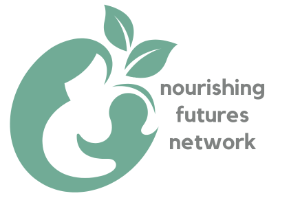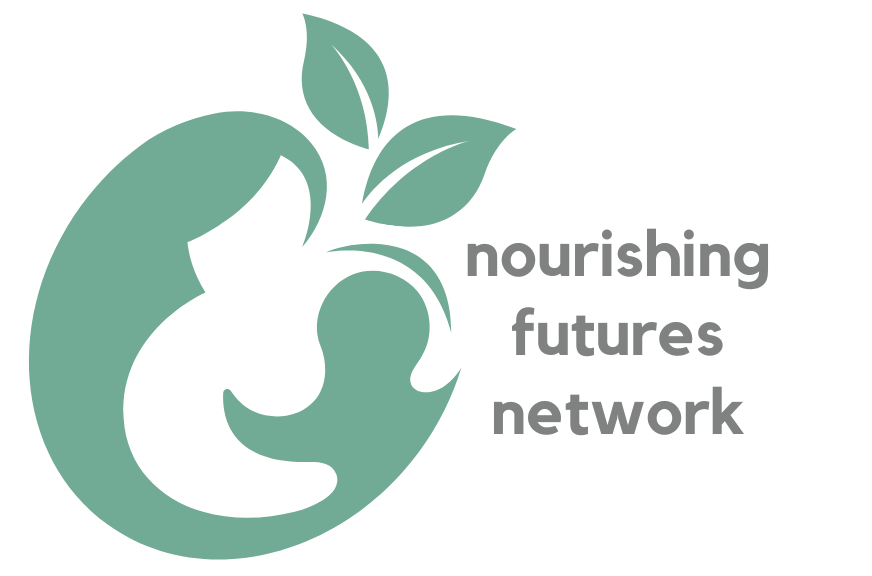About NFN
Nourishing Futures Network

The Nourishing Futures Network brings together an international group to lead knowledge exchange and generation on issues of food security during preconception, pregnancy, and early life.
The network is led by researchers working to solve issues related to food insecurity across these important life stages, through sustainable and equitable approaches and multidisciplinary collaborations.
The aim of the network is to share knowledge and expertise, create a platform for collaboration, bring together research and evidence, policy and practice, voluntary sector, and those with lived experience on issues of food insecurity and the crucial period of preconception, pregnancy, and early life. By working together, we aim to generate change, to improve life course heath for women and their families.
Our current areas of interested are in exploring the different and important components of maternal and child food insecurity during this vital life course stage including:
-
a clinical and mechanistic perspective on the maternal and child life course health impacts of food insecurity
-
a societal and public health perspective on intersectional inequalities driving food insecurity
-
a policy and practice perspective on interdisciplinary and multi-sector strategies to mitigate and respond to food insecurity.
.jpg)
Food insecurity during preconception, pregnancy, and early life
Food insecurity, the restricted availability and accessibility of safe and nutritious food, both with and without hunger is a critical public health issue. An estimated 2 billion people globally are considered to be food insecure (1). Food insecurity has significant health implications for both adults and children including increased risk of chronic disease (2), severe nutritional deficiencies (3) weight loss or weight gain (4), adverse effects on a range of mental health conditions (5) and delayed growth and development in children (6).
Women are more likely than men to disproportionately bear the burden of food insecurity (7,8). Pregnant and postnatal women are particularly vulnerable to food insecurity and its negative impacts due to increased nutritional needs of the growing baby during pregnancy and for adequate breastfeeding. Food insecurity in pregnancy has been shown to be associated with multiple adverse health outcomes for the mother and baby. These include pregnancy complications such as gestational diabetes mellitus (9), depression and anxiety (10), and both inadequate and excess gestational weight gain (11). Babies born to mothers who are food insecure are at higher risk for low birth weight, congenital abnormalities (12) and preterm birth (13,14). The health burden on mothers and children resulting from food insecurity is significant and must urgently be addressed.
Addressing the crucial issue of food insecurity in pregnancy and the first 2001 days is a major public health challenge. Currently there are a lack of antenatal screening and management guidelines and a lack of effective and sustainable solutions which target this issue. In the interest of supporting best maternal and child health outcomes, guided, multidisciplinary interventions and translational public health research (15) is urgently needed. Collectively, we must prioritise action towards developing effective strategies which relieve the burden of food insecurity in pregnancy and the first 2001 days.
1. Morales ME, Berkowitz SA. The relationship between food insecurity, dietary patterns, and obesity. Current nutrition reports. 2016;5(1):54–60.
2. Seligman, H.K.; Laraia, B.A.; Kushel, M.B. Food insecurity is associated with chronic disease among low-income NHANES participants. J. Nutr. 2010, 140, 304–310. [CrossRef]
3. Kirkpatrick, S.I.; Tarasuk, V. Food Insecurity Is Associated with Nutrient Inadequacies among Canadian
Adults and Adolescents. J. Nutr. 2008, 138, 604–612. [CrossRef] [PubMed]
4. Martin, M.A.; Lippert, A.M. Feeding her children, but risking her health: The intersection of gender, household food insecurity and obesity. Soc. Sci. Med. 2012, 74, 1754–1764. [CrossRef]
5. Whitaker, R.C.; Phillips, S.M.; Orzol, S.M. Food insecurity and the risks of depression and anxiety in mothers
and behavior problems in their preschool-aged children. Pediatrics 2006, 118, e859–e868. [CrossRef]
6. Rose-Jacobs, R.; Black, M.M.; Casey, P.H.; Cook, J.T.; Cutts, D.B.; Chilton, M.; Heeren, T.; Levenson, S.M.;
Meyers, A.F.; Frank, D.A. Household food insecurity: Associations with at-risk infant and toddler development. Pediatrics 2008, 121, 65–72. [CrossRef]
7. Food and Agricultural Organisation (FAO). The State of Food Security and Nutrition in the World. Accessed Feb 9, 2024. https://www.fao.org/3/cc0639en/online/cc0639en.html
8. Zinga, J; van der Pligt P, McKay F. Views and preferences of food-insecure pregnant women regarding food insecurity screening and support within routine antenatal care. Health Expectations. 2024. 27: e13956.
9. Li L, Ji J, Li Y, Huang YJ, Moon JY, Kim RS. Gestational diabetes, subsequent type 2 diabetes, and food security status: National Health and Nutrition Examination Survey, 2007-2018. Prev Chronic Dis 2022;19:E42.
10. Laraia BA, Siega-Riz AM, Gundersen C, Dole N. Psychosocial factors and socioeconomic indicators are associated with household food insecurity among pregnant women. J Nutr. 2006;136(1):177–82.
11. Arzhang P, Ramezan M, Borazjani M, et al. The association between food insecurity and gestational weight gain: a systematic review and meta‐analysis. Appetite. 2022;176:106124.
12. Carmichael SL, Yang W, Herring A, Abrams B, Shaw GM. Maternal food insecurity is associated with increased risk of certain birth defects. J Nutr. 2007;137(9):2087–92.
13. Augusto ALP, de Abreu Rodrigues AV, Domingos TB, Salles‐Costa R. Household food insecurity associated with gestacional and neonatal outcomes: a systematic review. BMC Pregnancy Childbirth. 2020;20(1):229.



